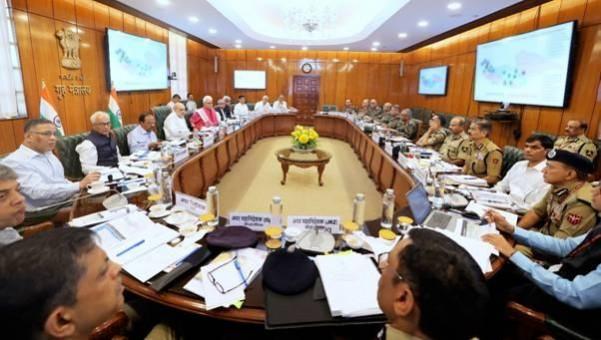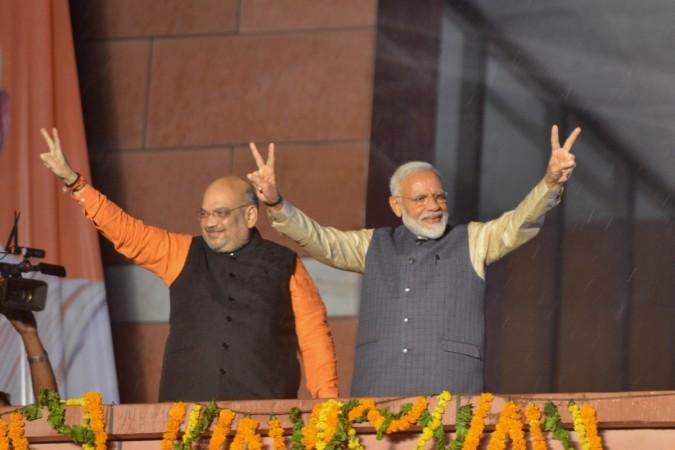
Under the leadership of Amit Shah, the Union Home Ministry has implemented a series of historic decisions, reshaping India's political and social landscape. These decisions have bolstered national security, promoted social justice, streamlined governance, and curbed terrorism and extremism.
From the abrogation of Article 370 to enacting the Citizenship Amendment Act, the Union Home Ministry has tackled long-standing issues, laying the foundation for a more unified and secure nation. These and other pivotal decisions over the past decade have profoundly impacted India's trajectory.
The Ministry has prioritized enhancing national security through several landmark initiatives. Implementing a multi-layered security grid along India's borders, including deploying advanced surveillance technologies such as drones and thermal imagers under the Integrated Security Grid, has been instrumental.
Successful operations against terror outfits, resulting in the neutralization of notorious terrorists and the dismantling of terror networks, have marked significant achievements in counter-terrorism efforts. Additionally, the Ministry has focused on revamping the intelligence framework by strengthening intelligence gathering and sharing mechanisms among various security agencies for proactive threat mitigation.

As Union Home Minister and Minister of Cooperation, Amit Shah, has emphasized, the Union Government, under the leadership of Prime Minister Narendra Modi, has adopted a robust strategy to curb terrorism.
National security and counter-terrorism
- Implemented a multi-layered security grid along India's borders with advanced surveillance technologies.
- Successful operations against terror outfits resulted in the neutralization of notorious terrorists and dismantling of terror networks.
- Strengthened intelligence gathering and sharing mechanisms among security agencies.
- Law and order
- Modernized police infrastructure with advanced weaponry, communication systems, and training programs.
- Introduced community policing programs to foster better police-public relations.
- Tackled left-wing extremism with intensified anti-Naxal operations and socio-economic development programs.
Criminal justice system
- Introduced reforms to ensure a more efficient and fair criminal justice system.
- Established fast-track courts for crimes against women and children.
- Enacted three new criminal laws to replace the old Indian Penal Code, Criminal Procedure Code, and Indian Evidence Act.
Disaster management and cyber security
- Enhanced disaster management capabilities with expanded and modernized NDRF units.
- Implemented comprehensive disaster preparedness and mitigation strategies.
- Established the Indian Cyber Crime Coordination Centre (I4C) to combat cyber threats.
Administrative efficiency and border management
- Adopted e-governance measures to streamline administrative processes and enhance transparency.
- Introduced online services to facilitate easier access to government services.
- Secured India's borders with road construction, fencing, and socio-economic development initiatives.
Abrogation of Art 370, 35A weakened forces challenging internal security
The abrogation of Articles 370 and 35A has led to a significant change in Jammu and Kashmir, with over 30,000 local representatives now in place and more than 100 laws applicable to the region. This has weakened the forces challenging internal security.
Zero-tolerance policy against terrorism
- The Union Government has adopted a zero-tolerance policy toward terrorism.
- Strategies to eliminate terrorism have been bolstered.
- The success achieved in Jammu and Kashmir, the Northeast, and Central India due to the "Whole of the Government Approach".
- Cooperation and coordination between security agencies, strong legal framework, technology-based database, and knowledge sharing.
Unlawful Activities (Prevention) Amendment Bill
- Empowers NIA to attach properties acquired through proceeds of terrorism
- Streamlines process and eliminates delays.
- The conviction rate of NIA stands at 91 percent.
- The amendment empowers officers of the rank of inspectors and above to investigate cases under UAPA.
- Individuals involved in terrorist activities can be designated as terrorists.
- Passage of the Unlawful Activities (Prevention) Amendment Bill marks a significant milestone in India's fight against terrorism, showcasing the Union Government's dedication to maintaining national security and protecting citizens' rights.
These achievements demonstrate the Union Home Ministry's commitment to a unified, secure, and prosperous India.
















